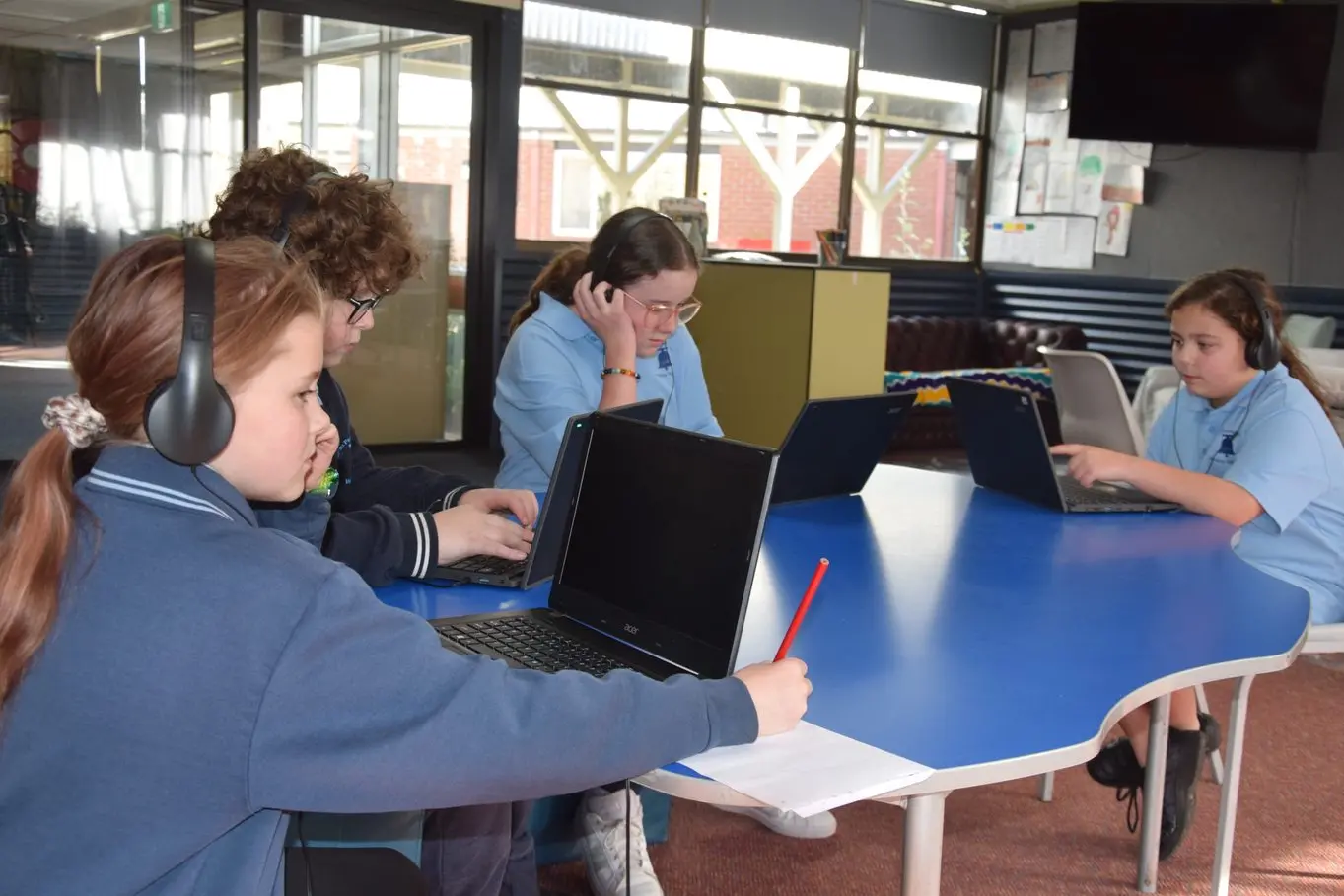PHOTO
Euroa Primary School has welcomed NAPLAN results for 2025 that should satisfy any parent that the school is well on track for establishing strong learning in their children.
Similar to Euroa Secondary College (The Euroa Gazette 5 August), the results at EPS reflect changes within the school, such as a return to the basics of explicit teaching.
The changes have also come early in the tenure of principal Kim Flack, who has headed up the school since 2022.
Miss Flack said this year’s NAPLAN results showed two key trends that went beyond the obvious improvement in reading and mathematics between years three and five.
“The state did well in four out of the five domains, and the one domain that it didn't go as well as New South Wales was numeracy; whereas our best one was numeracy,” Miss Flack said.
"And probably we're seeing a lot more with our year threes, and so we will start to see that improvement with our year fives from next year."
She said another improvement for the school in mathematics was no more 'outlier' stragglers affecting the data, and she praised the efforts of her staff.
"The biggest impact that we've had over the last couple of years is catching up so many of the students that used to be two years or 18 months below and just really catch them up.
“That's a lot of work for teachers to identify what actually is the gap and how do we now intensively sort that gap out while we still teach them?
“But at the same time, you've got to know what the gap is, and some kids might have a couple of gaps.
“So you sort out maybe the gap in number and algebra for some, but there's also this other gap for, say, measurement and geometry for others.
“So you then spend a lot of time on number and algebra and they grow in that."
The results also showed some really high performing students.
“We can keep pushing them as well.
“And it's paying off, definitely - nobody slips through."
For a school of its size, Flack says comparing the results against the state and particularly ‘matched schools’ is important.
Matched schools are 19 other regional schools of similar size and demographic, which NAPLAN uses for comparison.
“We seem to sit mostly just a couple below the top-performing schools, with a few schools below us.”
The matched schools also take the opportunity of collegiality between them when they meet.
“If we see what other schools are doing, keeping in mind we sit in a principals meeting of 19 other similar schools, and we are open and transparent, we can cooperate with each other.
“I will put our data down and we work out which school is which and might say to another school ‘you’re only 45 minutes away, can we come and look at your literacy plan?’”
The results also showed that EPS had improved significantly in that area parents worry about the most.
“If you try and look across to where the national level is, you would say that we're significantly improved in reading – where we were and then where it is now.
Flack attributes the improvements in literacy to more ‘hard core’ phonics which the Department of Education introduced several years ago, and said the days of more project-styled work were 'probably now gone', with explicit teaching now more front and centre.
“Because we've gone right back to basics for lots of our program from 2023, we've been able to see this trend going up.
“Our grade threes this year have gone up in reading, they've gone up in writing, they've gone up in spelling, and also in grammar and punctuation, and it's coming from phonics; it's coming from writing traits.
"It's called six-plus-one writing traits, it's from the department, and it is just more consistent with stronger explicit teaching.
“So as that consistency keeps going through, that should start to show in future results."
Also conducive to the high-quality public education available in Euroa is the collegiality between Miss Flack and Euroa Secondary College Principal Anna Eddy, with the changes between Grades 5 and 7 – during which students transition to the other school – being a cornerstone for pedagogy at the college.
“Anna and I meet up regularly, and Anna probably knows more about our year five NAPLAN for her year sevens than other high school would.
NAPLAN has also improved over the years in its process, and Miss Flack said the main advantage was the transition to online which began in 2018.
“The difference is that we get the data back really early so you can actually do things for three whole terms,” she said.
“In the olden days, we didn’t get results on the paper test until October, so we could only really make changes in the next year before the next test which was held the following March.”
Also no longer an issue is the oft-touted anxiety that students suffer in the lead up to the two-week-long testing 'season'.
“The students think it’s a great challenge now that it is online.”
“Our kids love NAPLAN.”





